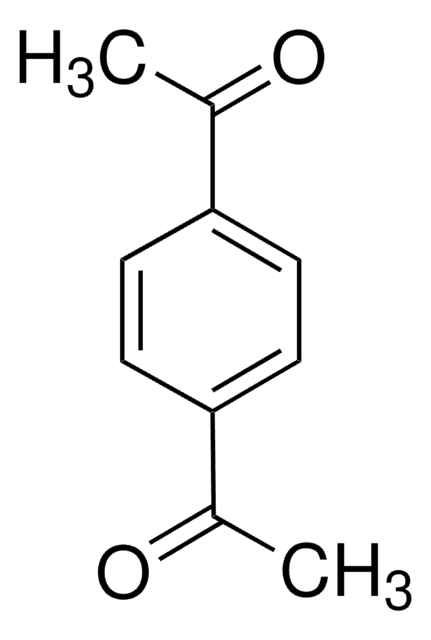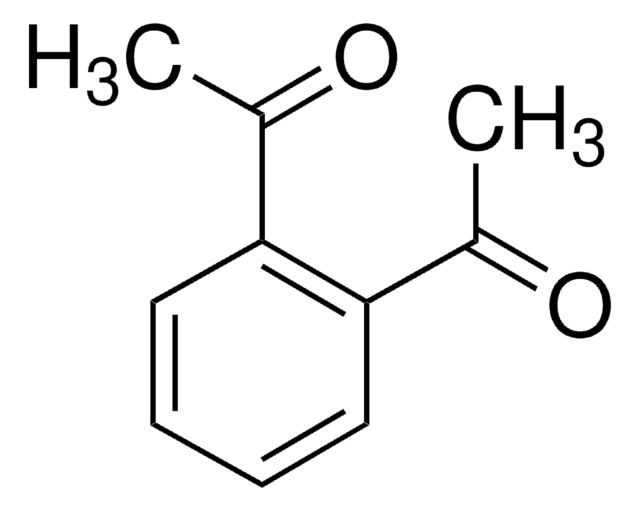158984
1,3-Diacetylbenzene
97%
Synonym(s):
1,1′-(1,3-Phenylene)bis[ethanone], 1,3-Bis(1-oxoethyl)benzene, 1-(3-Acetylphenyl)ethanone, 2,6-Diacetylbenzene, 3-Acetylacetophenone, m-Acetylacetophenone, m-Diacetylbenzene
About This Item
Recommended Products
Quality Level
Assay
97%
form
crystals
bp
150-155 °C/15 mmHg (lit.)
mp
28-32 °C (lit.)
functional group
ketone
storage temp.
2-8°C
SMILES string
CC(=O)c1cccc(c1)C(C)=O
InChI
1S/C10H10O2/c1-7(11)9-4-3-5-10(6-9)8(2)12/h3-6H,1-2H3
InChI key
VCHOFVSNWYPAEF-UHFFFAOYSA-N
Looking for similar products? Visit Product Comparison Guide
General description
Application
Storage Class Code
11 - Combustible Solids
WGK
WGK 3
Flash Point(F)
235.4 °F - closed cup
Flash Point(C)
113 °C - closed cup
Personal Protective Equipment
Choose from one of the most recent versions:
Already Own This Product?
Find documentation for the products that you have recently purchased in the Document Library.
Customers Also Viewed
Our team of scientists has experience in all areas of research including Life Science, Material Science, Chemical Synthesis, Chromatography, Analytical and many others.
Contact Technical Service









